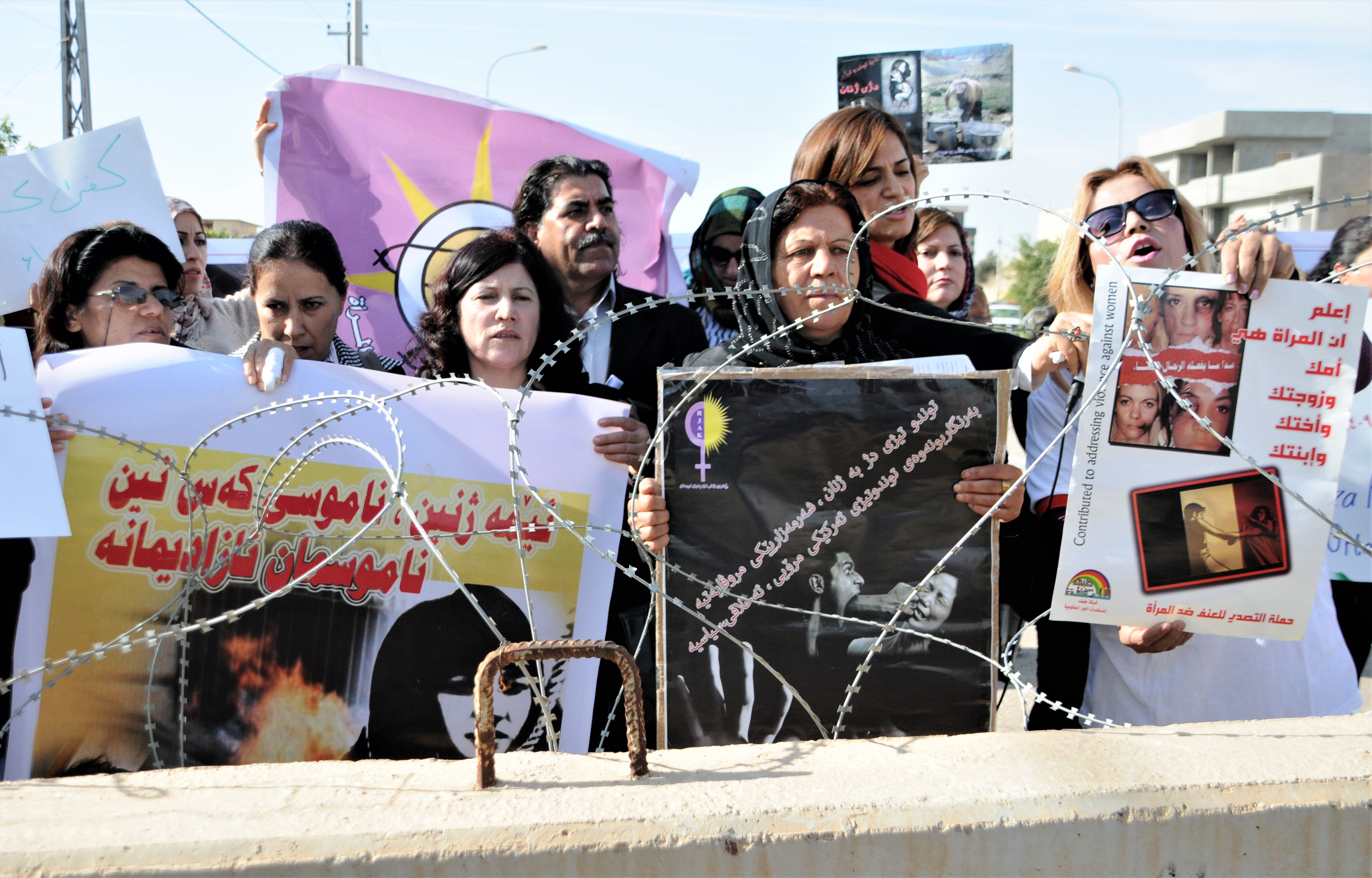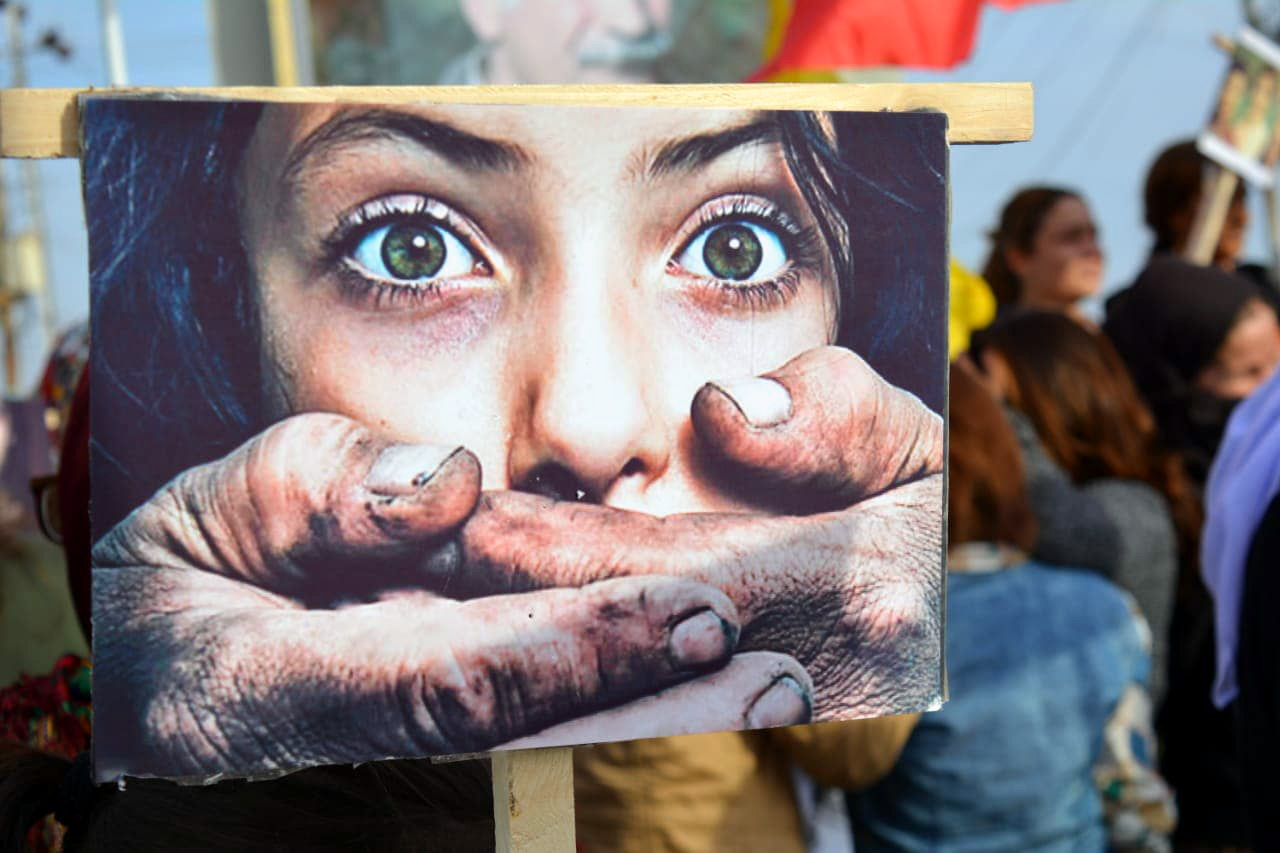The Iraqi federal government has approved to inaugurate a shelter for women exposed to violence, after unremitting and continuous efforts by activists and defenders of women's rights.
The opening of the shelter, according to Intisar Karim, responsible for the development and women's department in the Kirkuk province administration, is currently dependent on time and a number of logistical matters. The shelter is scheduled to open its doors to women exposed to violence and threats soon.
"All legal procedures have been completed and the Iraqi government has expressed its agreement. It remains only to finish the restoration work of the building and provide shelter supplies," Intisar continued.
"It will be officially opened within the next few days."
The importance of opening a shelter for abused women means there will be no need to transfer these women to the shelters in Baghdad and Sulaymaniyah in order to protect them, given that many of the abused women rejected being transferred to another province.
According to statistics obtained by KirkukNow from Kirkuk Police Command, since the beginning of this year, nearly 500 cases of domestic violence have been officially registered.
The spokesman for the police command, Major Amer Nouri, told KirkukNow the 500 cases are diverse, including quarrels between couples, betrayal, child custody and many other problems. “Some of these cases have been resolved and some are still under investigation."

Women's rights activists call for launching a media campaign to coincide with the opening of the shelter, so that battered women would be aware of the existence of such a place that provides protection for them.
Some organizations defending women's rights indicate that there are dozens of cases of violence and abused women, but due to the lack of a shelter for them, they were forced to join prostitution networks.
Sabriya Hazem, 26, who works as a "fortune teller" in a traffic intersection in the city of Kirkuk, is one of dozens of women who have joined prostitution networks during the past ten years.
Sabriya, a brunette woman who looks older than her real age, said, "I was 19 when I got married, at that time our house was outside the city of Kirkuk. A year after our marriage, it became clear to me that my husband was drugs addict.”
“He used to hide them in a room designated for raising pigeons on the roof of the house." Sabria added. "He was mistreating me, and he used to beat me hard every day and punch me in the face. One day I had to run away from his hand and went back to my father's."
During that period, according to Sabriya, her husband was constantly threatening her parents and asking for Sabriya to return home without going to court.
Sabriya was the only daughter of her parents. After a while her father died so she was forced under threat to return to her husband's house. "He was threatening me, I did not have family to protect me, so I had to go back to him. The most that pushed me to return was our one-year-old son."
He was threatening me as I had no family to protect me so I had to go back to him
Sabria's story with her husband was full of torture and pain so one day she left her young child and turned to an organization working in the field of women's rights, which in turn transferred her to a shelter in Baghdad for her safety.
But Sabria says that she did not feel comfortable in that shelter. "The shelter was teeming with all kinds of women. She mixed with a group of women who worked as fortune tellers at intersections, and they were arrested and placed in the shelter."
Two years later, Sabriya left the women's shelter in Baghdad on her own accord and returned to Kirkuk. She is now "fortune teller" at traffic intersections.
"Some people pay me 10,000 (Iraqi) dinars (USD7) for letting them touch my body."
The organizations say that the lack of adequate and safe shelter for women subjected to violence and threats is a major reason for the emergence of dozens of cases similar to Sabriya’s case.
"Occasionally, some drivers tell me that they own a farm and ask me to stay with them at night. Sometimes I don't refuse their request if I don't have the money to stay in the hotel," Sabriya shamefully said.
According to a statistic of the High Commission for Human Rights in Iraq, exclusively given to KirkukNow, the commission officially recorded 50 cases of "suicide" in the first six months of this year, 42 of them were females, in addition to more than 260 cases of domestic violence.
This comes while last year witnessed 65 cases of "suicide" recorded in Kirkuk province, in addition to 200 other cases of violence from February to the end of September 2020.
In 2019, Kirkuk recorded the highest rate of "suicide" in Iraq, as it recorded 106 suicides, 89 of which were women.
The Anti-Domestic Violence Law endorsed by the Iraqi parliament addresses several ways to reduce domestic violence, including opening shelters in the provinces. However, this law has not yet been approved by the Iraqi parliament.
For her part, Intisar Karim says, "Our continuous efforts to open a shelter for women during the past ten years came after the exacerbation of cases of violence against women in Kirkuk."
Women and human rights activists are pleased that their efforts to open doors of hope for abused women in Kirkuk came fruitful amid emergence of violence due to social, economic conditions in addition to rise of indications of violence following Covid-19 pandemic.
Sajjad Juma'a, head of the Kirkuk office of the High Commission for Human Rights in Iraq, said "I know that the opening date of the women's shelter is close. This is a very good step because there are too many cases of threats and violence against women in Kirkuk."
Regarding the department that will supervise the shelter, Juma'a said, "It will be under the supervision of the Ministry of Labor and Social Affairs, and a specialized staff will be allocated to manage the shelter."
"Media organizations should launch an extensive campaign during the opening of the shelter, so that the news reaches the ears of women exposed to violence, who do not find a place to turn to," said Juma’s who was full of hope.





